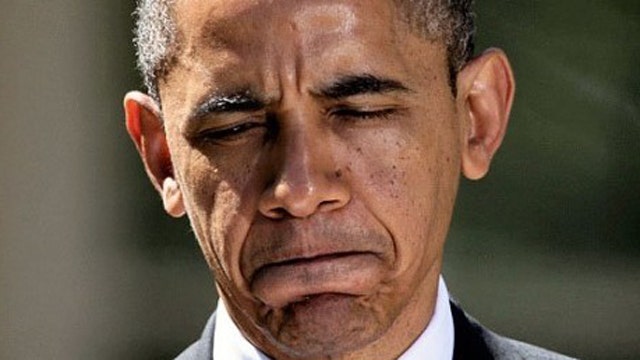Obama's ISIS plan: Is it enough and will he follow through?
President promises to 'destroy' terror group
Egypt's foreign minister said Saturday that he supported action against the Islamic State militant group, but stopped short of specifying any commitment on his country's part.
At a joint news conference with Secretary of State John Kerry, The New York Times reported that Sameh Shoukry said "Egypt believes it is very important for the world to continue their efforts strongly to fight this extremism," without specifying what aid the Cario government would provide. The Times reported that Shoukry was also referring to campaigns against Islamists in the Sinai Peninsula and neighboring Libya.
Efforts by the Obama administration to assemble a regional coalition to support military action against the Islamic State, also known as ISIS, have been met with varying success. Over the past week, Kerry and Defense Secretary Chuck Hagel have visited Iraq, Jordan, and Turkey, while Kerry attended a meeting of regional governments in Saudi Arabia, at which the campaign against ISIS was endorsed, but without military or logistical specifications.
The Times reports that the Obama administration is leaning hard on countries with large Sunni Muslim populations, like Egypt, Turkey, and Saudi Arabia to avoid giving the impression that they are intervening on behalf of the Shiite-dominated Baghdad government. ISIS is made up of Sunni Muslims.
However, the Associated Press reports that Turkey, for one, has told its allies, including the United States, that it will play no part this time. Turkey will keep its soldiers out of combat operations and NATO will not be allowed to use its bases or territories to launch air attacks. Last week, the Ankara government also declined to sign a U.S. brokered statement by Middle Eastern countries last week repudiating the Islamic State group and pledging to fight it.
Turkey's reticence has roots in two dilemmas. First, ISIS holds 49 Turkish hostages, including diplomats taken from its consulate in Mosul. Second, Turkey is wary of boosting its rebellious Kurdish minority for the sake of eliminating ISIS.
Turkey's position is complicated by its eagerness to uproot the Syrian regime of Bashar Assad, which led to tolerance of anti-Assad Islamist fighters taking refuge on its side of the Syrian border -- and may have given the Islamic State group some breathing room in Turkey. More recently, it has been forced to confront the threat that the group posed.
Western concerns that Turkey was tacitly tolerating the Islamic State group have been allayed by Turkey's strong statements of condemnation of the group and steps to rein it in, including kicking out suspected Islamic State group sympathizers.
But while expressing public support for Turkey, NATO allies are quietly saying they would like more action from their ally.
They would chiefly like to see Turkey tighten its border controls, stem the flow of fighters transiting Turkey from Western Countries and the Middle East, and crack down on oil smuggling from Syria that finances the Islamic State group. Western governments have been alarmed by a trend of the Islamic State group managing to smuggle Iraqi and Syrian oil across its borders. Turkey has cracked down, but analysts say that Turkey has simply not been able to police the smuggling across more than 750 miles of border with Iraq and Syria.
One ally who has specified its commitment to anti-ISIS operations is Australia. On Sunday, Prime Minister Tony Abbott said his country is preparing to contribute 600 troops and up to 10 military aircraft in response to a formal request from the United States for specific contributions. The aircraft will include up to eight F/A18 combat aircraft, an E-7A Wedgetail Early Warning and Control aircraft and a KC-30A Tanker and Transport aircraft to be deployed to the United Arab Emirates.
The 400 air force personnel and 200 others in the contingent could be deployed this week, Abbott told reporters in Darwin.
A statement from Abbott's office said special operations personnel who could assist Iraq's security forces were being prepared also, but combat troops were not being deployed.
The Associated Press contributed to this report.





